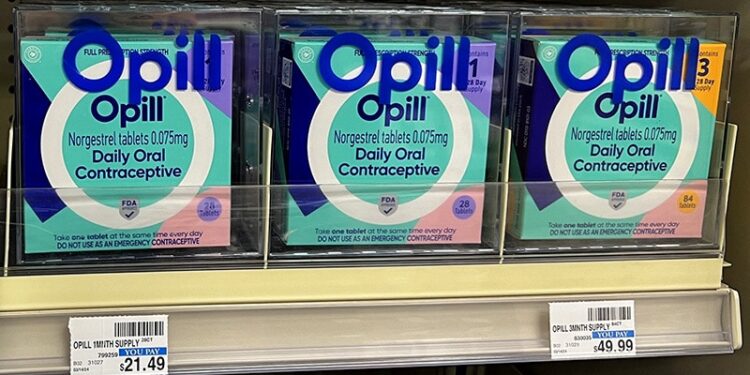TOPLINE:
Over-the-counter (OTC) oral contraceptive pill access was linked to a 31.8 percentage point increase in contraceptive initiation among nonusers and a 41.0 percentage point increase in transitioning from less effective methods. More uninsured individuals (31.6% vs 3.5%) and rural residents (14.4% vs 8.4%) accessed OTC options compared to prescription users.
METHODOLOGY:
- A cross-sectional analysis utilized baseline data from a national, prospective, United States cohort study.
- Participants included 986 individuals, with the largest proportion aged 20-24 years (338 participants [34.3%]) and predominantly single (692 participants [70.2%]).
- OTC oral contraceptive pill users accounted for 320 (32.5%) of the sample.
- Researchers recruited individuals aged 15-45 years obtaining oral contraceptive pills at pharmacies or online between April 2024 and February 2025.
- Analysis focused on comparing outcomes between OTC progestin-only oral contraceptive pill users with prescription oral contraceptive pill users.
TAKEAWAY:
- OTC contraceptive use was associated with a 31.8 percentage point increase (95% confidence interval [CI], 24.1-39.5) in transitioning from nonuse of contraception to oral contraceptive pill use compared with prescription users.
- Researchers found a 41.0 percentage point increase (95% CI, 33.8-48.1) in transitioning from less-effective contraception methods to oral contraceptive pill use among OTC users.
- More individuals living in rural areas utilized OTC pills compared to prescription options (46 participants [14.4%] vs 56 participants [8.4%]).
- The OTC group included higher proportions of Black or Latina individuals, those with lower educational attainment, and residents from the Southern United States.
IN PRACTICE:
“In this cross-sectional study of people with a biologic capacity for pregnancy in the US obtaining OCPs [oral contraceptive pills] either via traditional prescription pathways or directly OTC, the availability of an OTC OCP was associated with improved contraceptive uptake among individuals at elevated risk of unintended pregnancy. Importantly, OTC OCP users in our sample were more likely to be uninsured and reside in rural areas, underscoring the promise of OTC availability in bridging gaps where health care access is limited. These findings are particularly salient in the context of ongoing threats to reproductive health care access under proposed federal and state-level policy changes,” wrote the authors of the study.
SOURCE:
The study was led by Maria Rodriguez, MD, MPH, Center for Reproductive Health Equity, Oregon Health & Science University in Portland. It was published online on August 18 in JAMA Network Open.
LIMITATIONS:
The researchers acknowledged that despite adjusting for key covariates, unmeasured confounding may persist, particularly regarding fertility preferences or sexual behavior. Additionally, this analysis reflects early uptake following a change in method availability, and longer-term data will be needed to assess continuation, adherence, and impact on unintended pregnancy rates.
DISCLOSURES:
Maria Rodriguez, MD, MPH, reported receiving personal fees from the World Health Organization and grants from Perrigo outside the submitted work. The study was supported by an award from Arnold Ventures. The funder had no role in the design and conduct of the study; collection, management, analysis, and interpretation of the data; preparation, review, or approval of the manuscript; or decision to submit the manuscript for publication.
This article was created using several editorial tools, including AI, as part of the process. Human editors reviewed this content before publication.
Source link : https://www.medscape.com/viewarticle/over-counter-oral-contraceptive-access-improves-2025a1000lo5?src=rss
Author :
Publish date : 2025-08-18 15:00:00
Copyright for syndicated content belongs to the linked Source.





